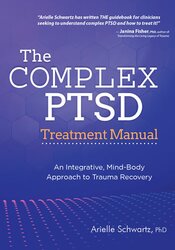Connection & Co-Regulation: Using Self-Awareness to Model Self-Regulation
Learn from a leading voice in the healing of PTSD & complex trauma

Co-regulation in psychotherapy provides opportunities for our clients and ourselves to have new, socially learned experiences of connection, attunement, acceptance, and compassion. Simply put, we learn to compassionately respond to our own painful emotions when we have experiences of being unconditionally accepted by others. In this way, we can think of co-regulation as a precursor to self-regulation.
Psychotherapy that focuses solely on skill building as a means of developing self-regulation is often limited because this “one-person” approach to therapy is not as transferable to the relational world we live in. With an interpersonal focus, we can observe the complexity of two minds and two bodies in a moment-by-moment exchange. Here, we must go beyond the verbal narrative to attend to the nonverbal communications of both the therapist and client by paying attention to the ways that our body language, facial expressions, and tone of voice inform our relational experiences.
When we, as therapists, attune to our own body during session, we can sense subtle changes in our own somatic experience that might provide insight into the experience of the client. For example, you might notice a subtle tightening in your chest and, as a result, place your hand over your heart and take a deep breath. By developing this embodied awareness, you model your own self-regulation. This can then become a nonverbal invitation for the client to breathe more deeply, or you might use this information to encourage them to sense their body and breath. Your capacity to regulate your own nervous system not only helps with the client’s ability to regulate their body and mind, but it also provides a foundation for self-care.
The process of developing this somatic awareness in session allows therapists to apply polyvagal theory to therapy. Here, we facilitate co-regulation as an interactive process that activates the social engagement systems of both the therapist and client. Although it is common for clients with complex (C-PTSD) to alternate between hyper-aroused and hypo-aroused states, by engaging in co-regulation, we can help them feel safe and connected even in the midst of a wide range of difficult emotions and body sensations.
The goal of regulating emotions is not to make feelings go away. Rather, the aim is to help clients build their capacity to ride the waves of big emotions and sensations. Initially, clients work through overwhelming emotions and somatic experiences with the knowledge that we are willing to join them in these difficult moments. In time, this process helps them learn that temporary experiences of contraction can resolve into a natural expansion of positive emotions, such as relief, gratitude, empowerment, and joy. Ultimately, this process helps clients trust their own capacity to handle their feelings.
from The Complex PTSD Treatment Manual offers relational interventions to bring co-regulation into therapy. This practice begins by inviting you to focus on your own breath and body sensations to understand what you are bringing into the therapy room. This self-awareness then serves as the foundation for rest of the practice, which invites you to notice cues about your client’s nervous system state, to share your observations with them, and to explore changes in eye contact or spatial positioning to facilitate greater regulation in relationship.
to download the Explore Co-Regulation exercise from The Complex PTSD Treatment Manual.
You can find more information on how to conduct successful therapy with clients who have experienced prolonged exposure to traumatic events in
*This is an adapted excerpt from The Complex PTSD Treatment Manual by Arielle Schwartz, PhD. Copyright ¬© 2021, Arielle Schwartz. ∫⁄¡œÕ¯ Publishing.
Learn more about treating complex trauma in Dr. Arielle Schwartz’s other blog posts: Somatic Psychology in the Treatment of Complex PTSD and Attending to Dissociative Symptoms with Parts Work Therapy.
Psychotherapy that focuses solely on skill building as a means of developing self-regulation is often limited because this “one-person” approach to therapy is not as transferable to the relational world we live in. With an interpersonal focus, we can observe the complexity of two minds and two bodies in a moment-by-moment exchange. Here, we must go beyond the verbal narrative to attend to the nonverbal communications of both the therapist and client by paying attention to the ways that our body language, facial expressions, and tone of voice inform our relational experiences.
When we, as therapists, attune to our own body during session, we can sense subtle changes in our own somatic experience that might provide insight into the experience of the client. For example, you might notice a subtle tightening in your chest and, as a result, place your hand over your heart and take a deep breath. By developing this embodied awareness, you model your own self-regulation. This can then become a nonverbal invitation for the client to breathe more deeply, or you might use this information to encourage them to sense their body and breath. Your capacity to regulate your own nervous system not only helps with the client’s ability to regulate their body and mind, but it also provides a foundation for self-care.
The process of developing this somatic awareness in session allows therapists to apply polyvagal theory to therapy. Here, we facilitate co-regulation as an interactive process that activates the social engagement systems of both the therapist and client. Although it is common for clients with complex (C-PTSD) to alternate between hyper-aroused and hypo-aroused states, by engaging in co-regulation, we can help them feel safe and connected even in the midst of a wide range of difficult emotions and body sensations.
The goal of regulating emotions is not to make feelings go away. Rather, the aim is to help clients build their capacity to ride the waves of big emotions and sensations. Initially, clients work through overwhelming emotions and somatic experiences with the knowledge that we are willing to join them in these difficult moments. In time, this process helps them learn that temporary experiences of contraction can resolve into a natural expansion of positive emotions, such as relief, gratitude, empowerment, and joy. Ultimately, this process helps clients trust their own capacity to handle their feelings.
from The Complex PTSD Treatment Manual offers relational interventions to bring co-regulation into therapy. This practice begins by inviting you to focus on your own breath and body sensations to understand what you are bringing into the therapy room. This self-awareness then serves as the foundation for rest of the practice, which invites you to notice cues about your client’s nervous system state, to share your observations with them, and to explore changes in eye contact or spatial positioning to facilitate greater regulation in relationship.
to download the Explore Co-Regulation exercise from The Complex PTSD Treatment Manual.
You can find more information on how to conduct successful therapy with clients who have experienced prolonged exposure to traumatic events in
*This is an adapted excerpt from The Complex PTSD Treatment Manual by Arielle Schwartz, PhD. Copyright ¬© 2021, Arielle Schwartz. ∫⁄¡œÕ¯ Publishing.
Learn more about treating complex trauma in Dr. Arielle Schwartz’s other blog posts: Somatic Psychology in the Treatment of Complex PTSD and Attending to Dissociative Symptoms with Parts Work Therapy.
Discover an Integrative, Mind Body-Approach to Trauma

Clinicians working with complex trauma are honored with the most sacred of tasks: to bear witness to clients’ suffering and to attend compassionately to their wounds.
In The Complex PTSD Treatment Manual, clinicians will find the road map they need to conduct successful therapy with clients who have experienced prolonged exposure to traumatic events. Combining the science and art of therapy, Dr. Arielle Schwartz seamlessly integrates research-based interventions with the essentials of healing to create a whole-person approach to trauma treatment.
Drawing from her years of experience in working with trauma survivors, Dr. Schwartz provides clinicians with the tools they need to become a trustworthy companion to trauma survivors and become capable of guiding a healing journey for clients with a history of abuse or neglect. Within these pages, you will find:
In The Complex PTSD Treatment Manual, clinicians will find the road map they need to conduct successful therapy with clients who have experienced prolonged exposure to traumatic events. Combining the science and art of therapy, Dr. Arielle Schwartz seamlessly integrates research-based interventions with the essentials of healing to create a whole-person approach to trauma treatment.
Drawing from her years of experience in working with trauma survivors, Dr. Schwartz provides clinicians with the tools they need to become a trustworthy companion to trauma survivors and become capable of guiding a healing journey for clients with a history of abuse or neglect. Within these pages, you will find:
- Essential interventions that strengthen mindful body awareness, enhance distress tolerance, cultivate self-compassion, and facilitate trauma recovery
- Over 50 practices, worksheets, and self-regulation points to utilize in each stage of the client’s therapeutic process
- Integration of several therapeutic approaches for trauma treatment, including relational therapy, mindful body awareness, parts work therapy, CBT, EMDR, somatic psychology, and practices drawn from complementary and alternative medicine
Meet the Expert:
Arielle Schwartz, PhD, is a licensed clinical psychologist, Certified Complex Trauma Professional (CCTP-II) and EMDR consultant with a private practice in Boulder, Colorado. She is the co-author of EMDR Therapy and Somatic Psychology: Interventions to Enhance Embodiment in Trauma Treatment (Schwartz & Malberger, 2018, W.W. Norton) and the author of The Complex PTSD Workbook: A Mind-Body Approach to Regaining Emotional Control and Becoming Whole (Schwartz 2016, Althea Press). Dr. Schwartz is an international presenter on EMDR therapy, somatic psychology, complex PTSD, attachment trauma, and the psychological treatment of chronic pain. She is a certified Kripalu yoga instructor offering therapeutic yoga for trauma recovery. Her integrative approach to therapy includes the synthesis of somatic psychology, EMDR therapy, structural integration theory, existential therapy, and Gestalt – all with a strong relational foundation of care.
Learn more about their educational products, including upcoming live seminars, by clicking here.
Learn more about their educational products, including upcoming live seminars, by clicking here.



